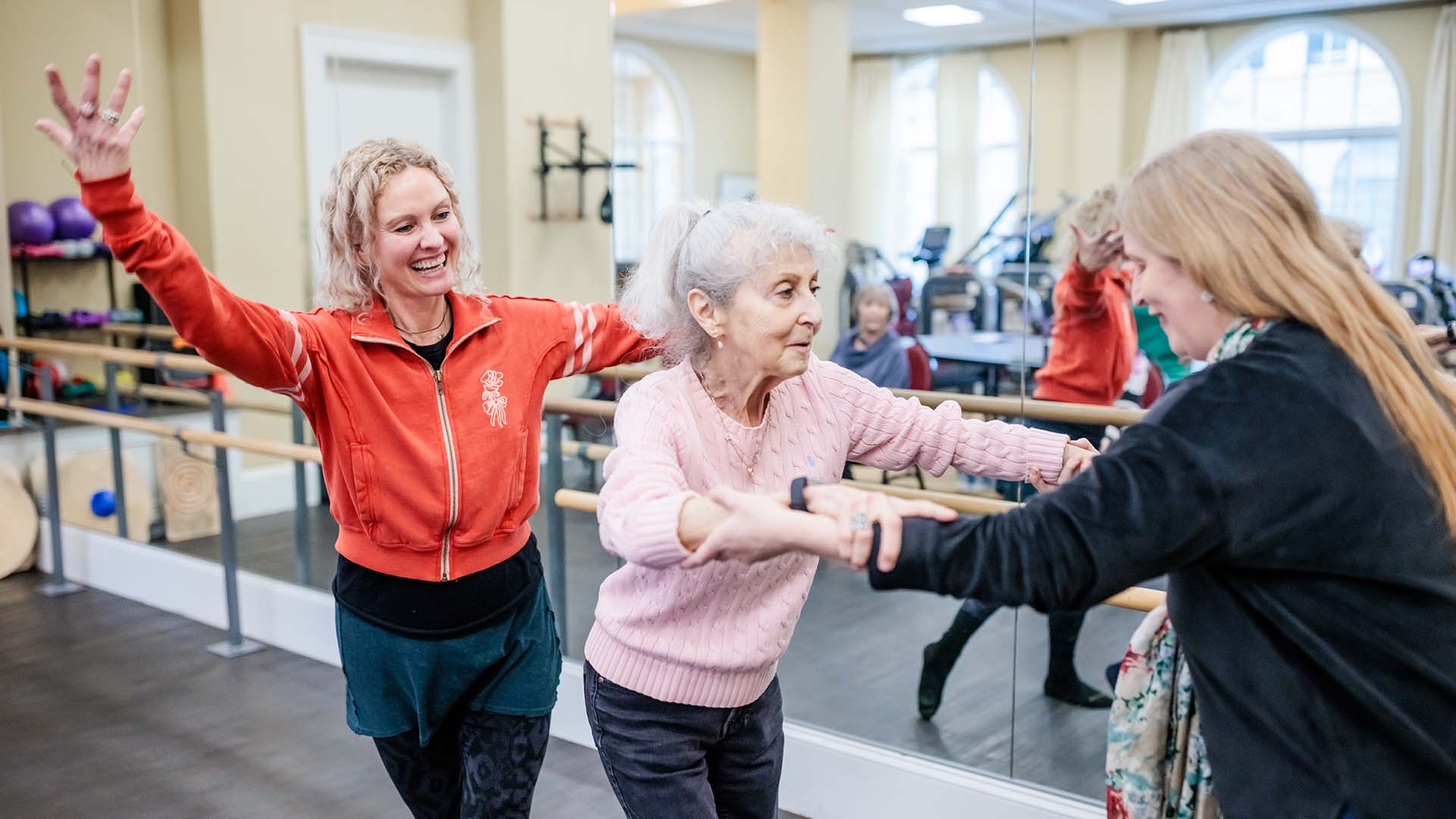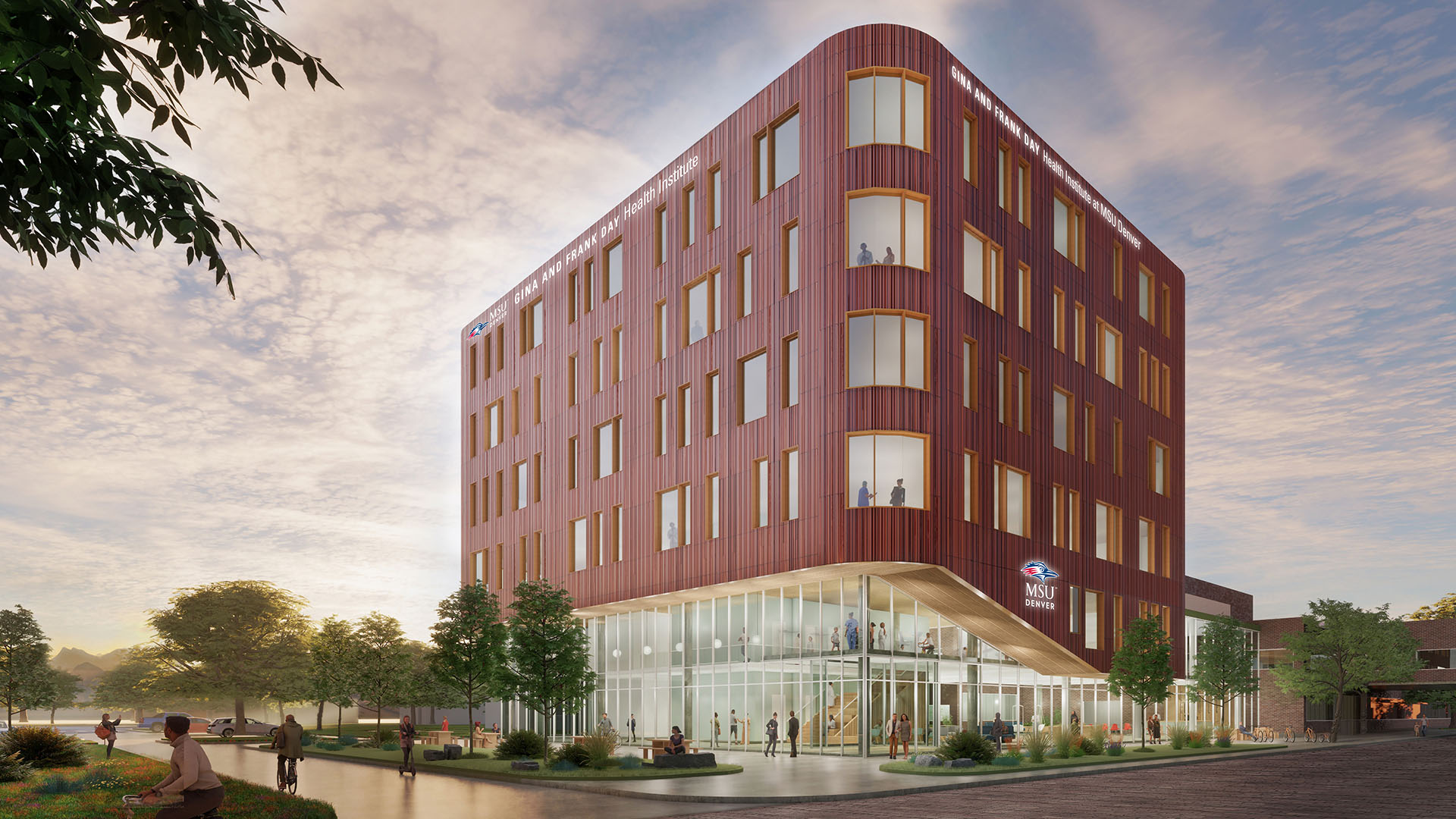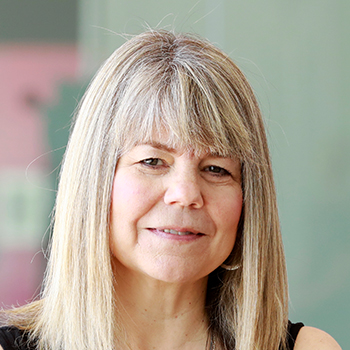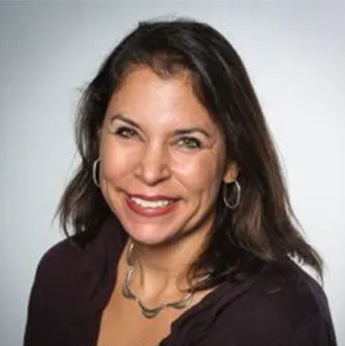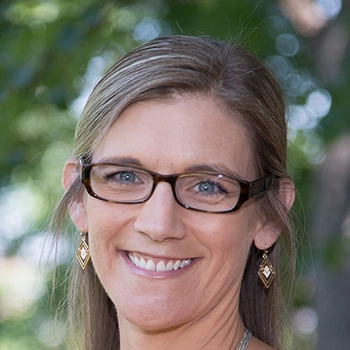Closing the equity gap
MSU Denver’s Health Institute writes prescription for change in Colorado’s health care workforce.
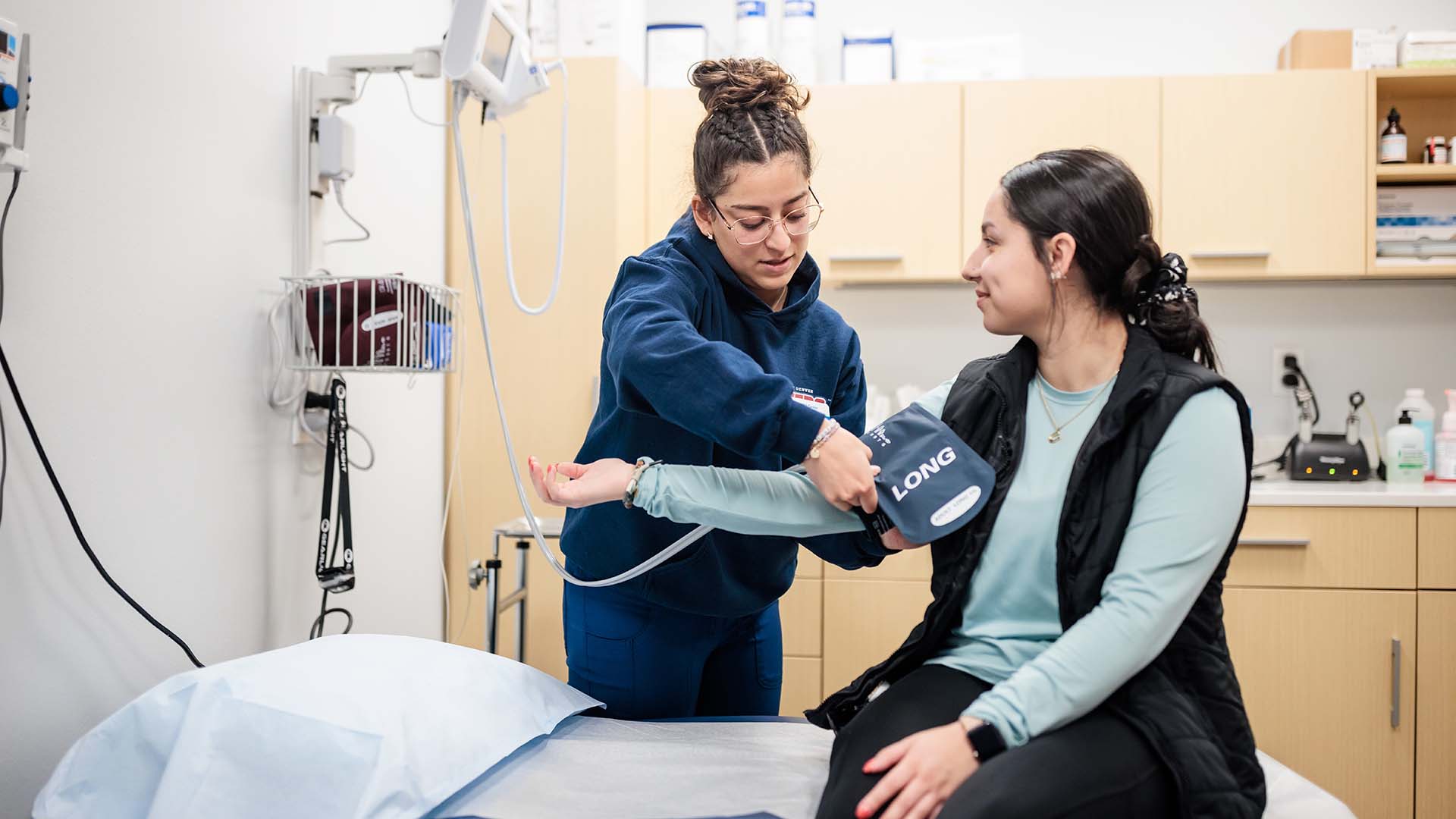
This story appears in the spring 2024 issue of RED Magazine.
Julianna Montoya has experienced the best and worst of Colorado’s health care system.
In 2016, her maternal grandfather fell from a 12-foot ladder and was taken via Flight for Life Colorado to Denver Health Medical Center. He wasn’t expected to survive but did. Recently, he was diagnosed with thyroid cancer and is receiving treatment, taking advantage of his excellent insurance and provider care.
Conversely, after Montoya’s aunt developed liver cancer, what began as a treatable condition progressed without her having access to insurance, primary care or diagnostic testing. She died in 2017.
“This can’t be the standard, where patients don’t have reliable access to or avoid health care,” Montoya said. “And those that do risk not being taken seriously because our systems are so overwhelmed or inequitable.”
Montoya has made it her mission to vanquish disparities in health care such as those that have affected her family. And the student at Metropolitan State University of Denver has found a partner in that cause with the Gina and Frank Day Health Institute at MSU Denver. The institute, a nexus of 10 academic departments and student-centered workforce partnerships, was founded on a commitment to address the social determinants of equity gaps in health care. More than 60% of those enrolled in the institute this past fall were students of color, an enrollment trend that should help more than 4,100 health care workers of color enter the Colorado workforce by 2030.
RELATED: Hospitality industry stalwarts serve Colorado’s health care needs with $10 million gift
Help on the way
This new wave of workers in health care, including Montoya, can’t arrive soon enough.
A December study of more than 6,000 adults by health-research nonprofit KFF found significant discrepancies in care quality among minoritized groups. About 18% of Black adults, 11% of Latino adults, 10% of Asian adults and 12% of Native American and Alaska Native adults reported experiencing unfair or disrespectful treatment by a health care provider in the past three years due to their race or ethnic background. That was in contrast to 3% of white adults.
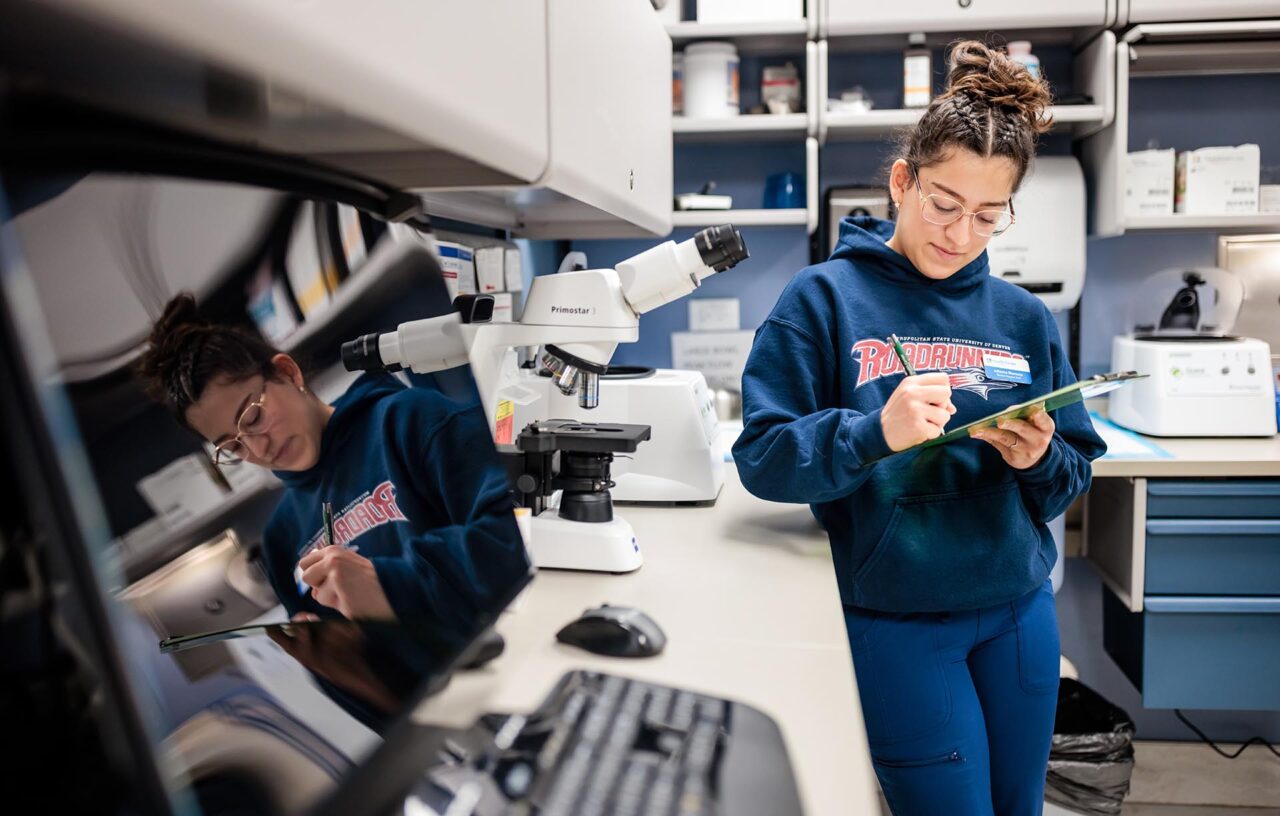
At the same time, studies from the U.S. Department of Health and Human Services have shown that patients receive better care from practitioners with whom they share a racial or ethnic background. Yet a shortage of physicians from underrepresented populations has led to a disproportionate number of medical practitioners available to serve them. Among Latino adults, 23.1% reported sharing a racial, ethnic or language background with their health care providers, compared with 73.8% of white respondents, according to recent data from the Urban Institute.
And that’s where MSU Denver’s Health Institute comes in, said Emily Matuszewicz, the initiative’s director of Development and Partnerships.
“With our access-driven mission and diverse student population, we’re perfectly poised to be the ones reaching out to historically underserved communities,” she said. “And health equity doesn’t just belong to Denver. We want to invite other rural and urban areas across the state to help us build upon what we’re already doing.”
A central component in the Health Institute’s strategy is the Health Scholar Programs. Their student success infrastructure encompasses individualized mentoring from peer leaders, health career navigators and graduate fellows; chances to connect and gain insights from professionals in the industry; life-design guidance; financial stipends and scholarships; and inclusion in a community of peers who share similar interests.
“Our programs give us the opportunity to scale and reach more students,” Matuszewicz said. “This is especially vital with historically underrepresented populations coming into higher education looking to give back and serve in needed professions.”
|
Current Health Scholar Programs Bank of America Scholars Program Colorado Access Health Career Pipeline Program CDPHE Practice-based Health Education Grant Program DACA/Undocumented Student Health Career Opportunity Program Health Careers Opportunity Program Other Health Institute Initiatives
|
|
Better outcomes
The results speak for themselves: Since 2018, more than 450 health scholar participants have received over $2 million in scholarships and stipends along with wraparound services. The assistance has led to a 94% rate of students either being retained semester-to-semester or graduating.
RELATED: Banking on the future of health care
Montoya, a double major in Public Health and Biology, knew she was on the right path from the moment she took her first class with Erin Seedorf, Dr.PH, assistant professor in the Department of Health Professions. And connecting with numerous Health Institute programs further solidified her resolve. As a Healthcare Interest Program participant, Montoya shadowed practitioners at Denver Health’s Sam Sandos Westside Family Health Center on Federal Boulevard.
“It was striking — all of the patients looked like me,” Montoya said. “Even more so, I overheard moms telling their daughters, ‘You see her? That could be you someday.’
“To be able to be in that space and help others see they belong — I’m just overwhelmed with gratitude.”
Today, Montoya is a peer health educator at Girls Athletic Leadership Schools Denver, where she helps connect students to mental health and sexual wellness resources, as well as a Bank of America scholar, focused on addressing health access and equity in Latinx communities. She also works at the Health Center at Auraria as a certified medical assistant and will help support the Colorado Access Health Career Pipeline program.
It’s a lot for a student to balance. But with her sights set on grad school and becoming a physician assistant, Montoya remains steadfast in her commitment as a health equity Changemaker.
“Public health connects us all — I love it,” Montoya said. “And I never forget that we’re sending patients back to their families to tell the stories shaping their experiences with health care.”

